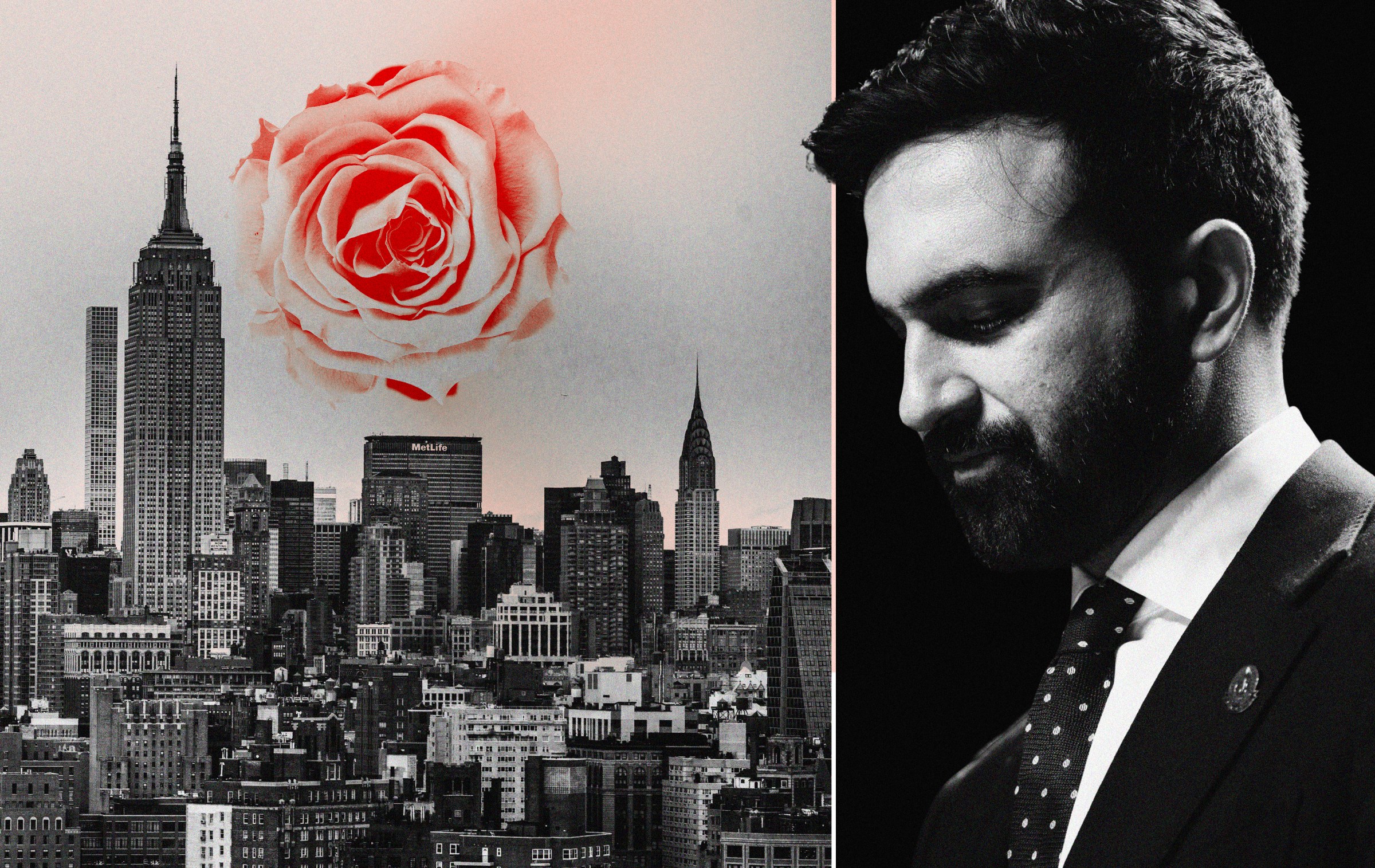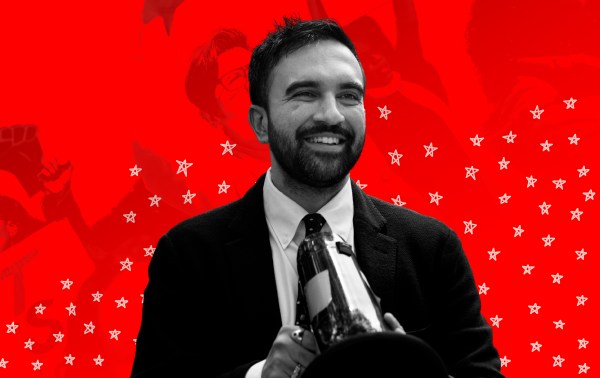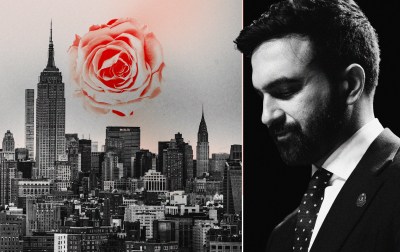The Democrats of New York City have nominated a professing socialist, Zohran Mamdani, as their mayoral candidate.
I wonder: Does “socialism” still mean anything?
People are interested in socialism. The light little book I wrote on socialism more than a decade ago has been by far the best-selling of any of my books, and I am amused from time to time to see advertisements for the Portuguese version of it that was apparently well-received in Brazil. (Parents often buy the book as a graduation present for college-bound students, and many of them ask me to write some version of “Don’t believe everything those commies at Brown tell you next year!” in signed copies.) I shouldn’t be surprised by that, given that people are also very interested in such exotic nonsense as astrology and veganism, but socialism does seem like one of those things we should all have gotten over before now.
There are very few socialist countries left in the world, and those that remain tend to be basket cases such as North Korea and Cuba. India is constitutionally socialist, but that is strictly parchment socialism. It probably would not be accurate to describe the so-called People’s Republic of China as socialist, but it would be fair to say that it is a country in which the single-party police state that runs the place is led by men who take socialism seriously, who think of themselves as socialists and their project as a socialist project.
Socialism is a word with some heft on both the left and the right. Just as Republicans started calling themselves “populists” and “nationalists” and whatnot when they decided that they were sick of standing with Paul Ryan and preferred kneeling before Donald Trump (“a matter of taste,” as the secretary general of NATO might put it), some Democrats call themselves “socialists” and join organizations such as the Democratic Socialists of America as a way of saying, “I hate Republicans more than Chuck Schumer does.” Republicans sometimes use “socialist” roughly the same way (to distinguish the more left-wing kind of Democrat from the more centrist kind), but lately they just use it to mean “hated un-person,” and surely you’ve all heard a local barstool numbskull (such as the president of these United States of America) call Michael Bloomberg or Mitt Romney a “socialist” or a “Marxist” or something like that.
However it is misused today, “socialism” is a word with a meaning and a history, and I am just silly enough to continue to believe that these things still matter a little bit.
New York has more socialism than most U.S. cities, and you’ll find it most prominent in the areas that are most dysfunctional: public housing, public schools, and public transit—which could be described with equal accuracy as collective housing, collective schools, and collective transit. (You can tell a lot about someone’s political assumptions by his reaction to the word public—does he think public library and National Public Radio, or public toilet?) These are socialistic enterprises (and I do not use the word to mean evil) in that they substitute a centrally planned and politically controlled system of providing economic goods for a market system. Replacing markets with central planning is what socialism is—which is not the same as a welfare state.
For example, Zohran Mamdani likes the idea of government-owned grocery stores. We already have a system (flawed, but pretty good) for subsidizing food costs for poor people, which we call, for outmoded historical reasons, “food stamps.” (I am old enough to have seen actual physical food stamps, which my mother would drive miles out of her way to use at a grocery store where she hoped she would not be seen by anybody who knew her.) Food stamps work reasonably well (reasonably well, I write; I can tell you all about hillbilly wampum) because they do not do much to disturb markets—they only subsidize purchases in those markets by injecting money into them.
(Food stamps are money, albeit a restricted form of currency we give to people we do not trust with cash because we as a society have democratically decided that they are too stupid and irresponsible to be trusted with their own purchasing decisions; if that description distresses you in spite of its being entirely and inarguably accurate, you might consider asking yourself why your feelings are thus aroused.)
Shoveling extra money into a market can produce serious distortions, as it has with housing prices and college tuition, both of which are higher than they should be thanks to the fact that we subsidize purchases with artificially cheap credit. But the food market is very large and food benefits are relatively small (something on the order of 4.5 percent of annual food expenditures), so we have not seen much market distortion as a result, beyond the existence of grocery stores in poor places (ranging from big cities to rural Appalachia) that stock few or no goods ineligible for subsidized purchases and that probably would not be viable as businesses without those benefits or at a lower level of subsidy.
Socialism attempts to get around the market distortion problem by subjecting economic activity to political regimentation: by having state-owned farms, state-owned factories, state-owned food distribution networks, or, in the case of Mamdani’s idiotic idea, state-owned retailers. The substitution of central planning for market prices always fails in the same way and for the same reason, which has to do with epistemic limitations familiar enough to anybody who has dipped his nose into any of the relevant bits of the more than a century’s worth of economic literature on the subject, including progressives such as Ezra Klein who seem to have just discovered it about 13 minutes ago and still have not managed to digest it.
Socialists such as Mamdani are always careful to underline the democratic part of democratic socialism, which, as in the case of various “democratic republics” of this and “people’s republics” of that, only serves to remind us where the socialists have had their most significant problems in the past. And while there are few socialist countries left, there are really no democratic socialist countries at all. (You could just about make a case for South Africa.) Democracy, like capitalism, is predicated on letting people choose for themselves what they want, and, given a democratic choice, socialism usually isn’t it.
There was a time, decades ago, when one might have argued that Sweden or Denmark, or even the United Kingdom, offered an example of democratic socialism, but all of those countries embarked on courses of market-oriented liberal reform—precisely because they are democratic, and the demos was not satisfied with the results of socialism: regimentation, stagnation, rationing, etc. Not every country is going to be Switzerland or Singapore or the United States, and socialist enterprises endure in such forms as the National Health Service in the United Kingdom. Many American progressives still dream of socialized health care, which they are sure will be an enormous improvement on our current model of half-socialized health care. But while it might come as a shock to some of our progressive friends, national monopoly systems such as those of the U.K. and Canada are quite rare globally, and they are not what you will find in most of Europe—including in such supposed progressive utopias as Sweden and Denmark, which far from being socialist exemplars are two very market-oriented countries that still outrank the United States on the Heritage Foundation’s (insert the necessary Trump-era asterisk there) index of economic freedom. It isn’t only health care, of course: State-owned oil companies are still a thing.
But when some supposed democratic socialist tells you that what he really wants is Denmark, ask him if he is talking about 55 percent marginal income tax rates on families with relatively modest incomes—because that is how Denmark does it.
If by “socialist” Zohran Mamdani means “to the left of Andrew Cuomo, and more uncompromising,” then that is not a great place to be, and it has its own problems. If he is serious about trying to supplant Gristedes with a state-run enterprise, then he is a hall of fame fool in a city that really cannot afford another one.







Please note that we at The Dispatch hold ourselves, our work, and our commenters to a higher standard than other places on the internet. We welcome comments that foster genuine debate or discussion—including comments critical of us or our work—but responses that include ad hominem attacks on fellow Dispatch members or are intended to stoke fear and anger may be moderated.
With your membership, you only have the ability to comment on The Morning Dispatch articles. Consider upgrading to join the conversation everywhere.